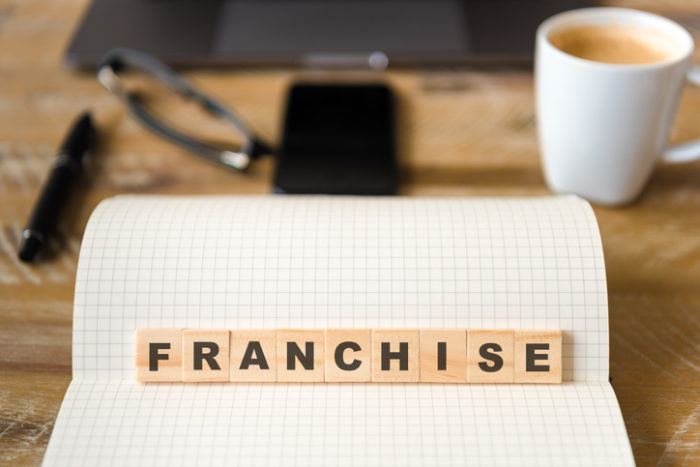As you get more interested in buying a franchise, and you begin to learn more about it, you’ll also see there are a lot of terms and lingo that may not be straightforward to someone who hasn’t spent any time in or around franchise organizations. The definitions of these words aren’t hard to find, but when you’re trying to establish yourself in the business world through franchise organizations, it’s important to have a firm understanding of the lingo.
Let’s have a look at some common terms surrounding the franchise world, examine some definitions, and find out what is meant by “franchise organization.”
Franchise Business Definitions

Let’s look at some basic terminology across the world of franchises, including the definition of franchisee, franchisor, and franchise, plus some examples of franchises.
Franchisor definition: a person or company that grants a franchise for the sale of goods or a service. Usually, the franchisor operates a successful business brand, and wants to expand into other markets. The most effective and cost-efficient way to do this is through franchising, where entrepreneurs in different markets express interest in running their own location and “franchise” the rights to the brand.
The franchisor is usually responsible for maintaining the brand’s reputation, providing some kind of good or service to be sold by franchisees, and offering different kinds of advisory support to franchisees, usually in the form of sales training, business plans, and/or marketing assistance.
Franchisee definition: an individual (or company) that holds a franchise for the sale of goods or a service. A franchisee is often someone who is looking for an opportunity to run his or her own business. They see an opportunity in owning a franchise (and rightfully so) and invest.
As a small business owner, a franchisee is responsible for following a franchise agreement (see below), managing daily operations of the store, and handling sales and marketing for their specific location.
Franchise Agreement definition: a legal agreement between a franchisor and franchisee which dictates the relationship of the business. A franchise agreement is usually heavily dependent on the business plan of the franchisor, and can range from being very loose to very strict.
Some franchise agreements essentially grant the rights of the established brand to the franchisee for basic use, and let the franchisee run the business the way they see fit. Others have fairly strict language that requires the franchisee to maintain certain appearances of the storefront, requires employees to wear specific uniforms, and may also dictate pricing structures.
Franchise Organization definition: a company which provides a good or service, in which a franchisor provides a legal agreement to a franchisee to operate under the company’s brand in order to sell the good or service in a different market.
The franchisors above are usually the entity behind a franchise organization.
Franchise Examples
Now that we know and understand some of the terminology often thrown around in franchise circles, let’s look at a few franchise examples.
Job Franchise – A job franchise is one of the most bare bones versions of a franchise. It provides the franchisee a license to operate under an established brand, but otherwise gives them free reign to operate the business how they see fit. These usually tend to be small businesses with 4-5 employees. Bloomin’ Blinds is a good example of a job franchise, where franchisees sells, installs and repairs blinds for local customers.
Product Franchise – Product franchises rely heavily on the supplier/dealer relationship. These types of franchises, too, rarely come with prescriptive business plans, because they usually depend on a franchisee’s business and sales acumen to really thrive. Product franchises are usually very successful retail operations because of this. Car franchises are a great example of this, but other stores too can fit in this vein, like YourCBDStore.
Business Format Franchise – This is the type of franchise most people envision when they hear “franchise.” Like many fast food restaurants, a business format franchise provides a turnkey solution to the franchisee. As part of the franchise agreement, it outlines things like uniforms for employees, pricing structure, and even behaviors, but everything outlined is usually based on a successful plan that has been implemented successfully in other markets. Most chain restaurants are good examples of this, but so are most retail chains, like Amazing Athletes, which provides a year-round children’s fitness program.
Finding a Franchise Organization
If buying into a franchise organization is in your future, there are hundreds of options to choose from. Look to Franchise.com for powerful search tools that can match you with the one that best fits your budget and the level of daily interaction you’re looking for. After you’re in, there are other helpful tools that can help you be successful in the long term.

